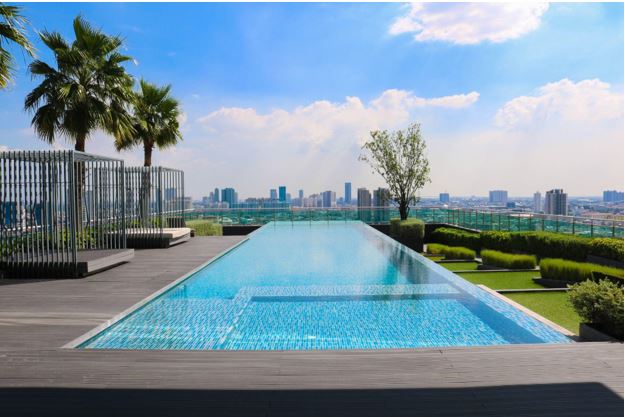What Sort of Pool Supplies Will You Need for Pool Care?
A well-maintained swimming pool is more than just a recreational amenity; it is a testament to precision, dedication, and responsible ownership. The importance of maintaining a swimming pool cannot be overstated, as it not only enhances the aesthetic appeal of a property but also ensures safety, hygiene, and sustainability.
Whether you are a homeowner, a hotelier, or a community manager, the conscientious upkeep of a swimming pool is an indispensable commitment that yields numerous benefits, both practical and aesthetic.
Now, we will delve into the things we need to make sure that we maintain our pool at its finest.
Supplies for Swimming Pools
Net Skimmer
When you think about pool supplies, what equipment comes to mind first? For good reason, we assume it’s a skimmer net. It will probably be the first device your pool supply company advises you to purchase. Having a device nearby to remove undesirable insects and leaves from your pool is a good idea, and using a skimmer net simplifies the process.
Recall that items like berries and leaves can discolor the shell if they remain on the surface for an extended period of time (the shell itself, not the water’s surface), so it’s best to remove them.
Pool Suction
Throughout the course of its life, a vacuum as well as suction cleaner may greatly help to maintain your water clear of debris and algae. Make it a practice to clean the steps and deck area at least once a week to avoid staining them from dirt that may cause discoloration if left unattended.
Test Kit for Water
Testing the water on a regular basis is the key to maintaining well-maintained, balanced water. (Doing so a couple of times a week should be plenty). Maintaining your chemical balance will make your life simpler and be better for your water’s surface if you stay on top of your testing schedule.
Neglected pools can acquire stains and other flaws, and the more time you leave them unattended, the more difficult it will be to restore the water’s chemistry to its original state.
A Scrubber
If you don’t maintain your shell, the walls may get slimy and house algae. You should brush out your shell once about every week to ensure that the surface may remain as spotless as it was on the first day.
Algae that likes to hide under the porous plaster surface of your concrete shell, you ought to employ a steel-bristle pool brush. A soft polyamide brush will do if your shell is fiberglass or has liners.
Pool Pumice
When it comes to cleaning stubborn shell stains, particularly those on surface or waterline tile, a piece of pumice stone might be your greatest friend. For this, please refrain from taking out your abrasive pumice stone from the shower. There are a lot of alternatives available at your neighborhood pool supply store.
Once more, if you’re going to use a sandpaper stone, stay away from tile or concrete floors and avoid using anything abrasive on the surface of your polyvinyl or fiberglass shell.
Pro tip: if you purchase one with a handle, it may make your life slightly simpler.
Pool Sanitizer (salt, chlorine, etc.)
It should go without saying that when the time comes to start your pool, you will need chlorine to hand if you want to use traditional chlorine. You may purchase pills, liquid, or powder in advance online or stock up at your local swimming pool store.
If you are installing a salt-chlorine generator, you will require a large supply of salt to start your pool. Forty to fifty pounds of salt are needed for every two thousand gallons of water in a new pool.
Shock in the Pool
Regardless of the sanitizing method you choose, it’s a good idea to have some shock on hand in the event your water turns into a muddy mess or a haven for algae. To keep your water, clean and clear of algae, you may also decide to shock it once a month every three weeks.
Glyphosate
Algae would most likely be your water’s worst enemy. As we previously said, owners of fiberglass shells shouldn’t have any problems with algae, but owners of concrete as well as vinyl liner shells need to exercise caution to prevent algae growth.
Whereas the stairs and joints of liner shells tend to harbor algae (https://microbiologysociety.org/why-microbiology-matters/what-is-microbiology/algae.html), a concrete surface with a gypsum surface is an algal paradise. You should be able to resume swimming as soon as possible by using an effective algaecide to eradicate infestation.
Cover for Pool
Whether a removable cover is required to comply with local standards depends on where you reside. In any case, having a removable cover may help save leaves and other debris from getting into your water and provide an additional safety measure when nobody else is around.
If you lack a pool heater or are unable to pay for one, a cover for your pool can also aid in warming your water. There are several kinds of pool covers; rolling floor pool covers are the most costly and automated, while winter pool covers are the most affordable.





